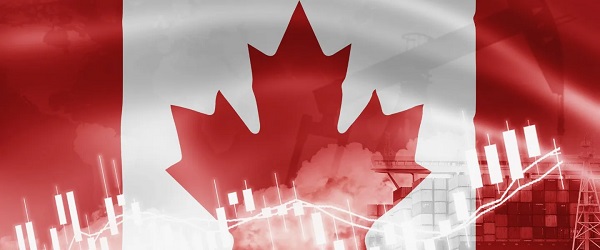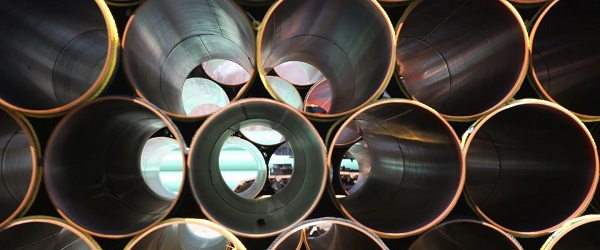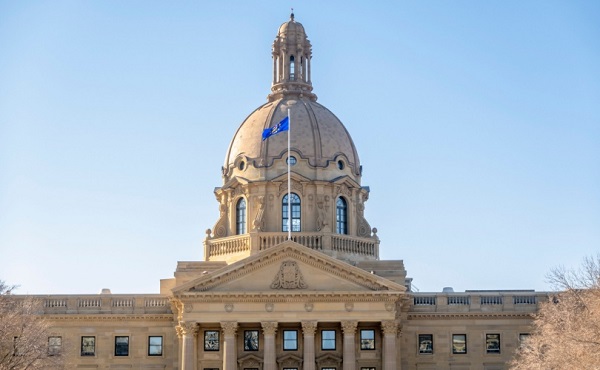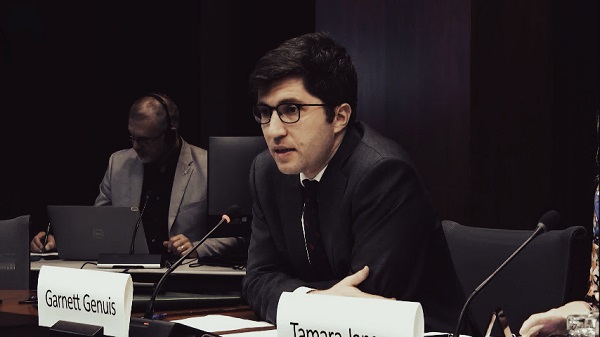Politics
Worries About ‘Existential Threat’ From Climate Change Suddenly Put On Hold For Paris Olympics

 From the Daily Caller News Foundation
From the Daily Caller News Foundation
The U.S. Olympic team will be supplied with room air conditioning units, joining other countries like Germany, Australia, the United Kingdom, Canada and Italy.
Organizers of the Summer Olympics Games to be held in Paris next month were hoping to force the games to be held sans air conditioning — what a wonderful virtue signal that would send to the climate-alarmed public!
The plan, as USA Today reported, was to force all event venues and athlete housing units to rely on a geothermal cooling system devised by the French. But, you know, it can get hot in Paris in the summer, and participating athletes and countries had some concerns about it.
So, despite the grand, centrally planned net-zero initiatives financed by trillions of debt-funded dollars and euros and pounds, many countries are planning to keep their athletes calm, collected and properly cooled with electricity-hogging room a/c units.
Note that the list of countries above includes some that are led by the world’s most aggressive and notorious climate scolds.
German leaders in this century have succeeded in largely destroying what had been the industrial powerhouse of Europe at the altar of climate alarmism, investing billions of debt-funded euros in a Quixotic attempt to power their society with windmills. That plan has been so successful to date that last winter, in a desperate attempt to avoid power blackouts, the government there resorted to reactivating mothballed coal plants and tore down a wind development to expand a domestic coal mining operation.
In the UK, the Tories — ostensibly the “conservatives” in Britain — now face an electoral wipeout of unprecedented proportions due in part to their buying whole hog into climate alarmist dogma.
In Canada, Prime Minister Justin Trudeau, whose public approval rating would make President Joe Biden blush, faces a similar fate for similar reasons in national elections that will take place in 2025.
The governments of Australia and New Zealand, in nominally “conservative” or “liberal” regimes alike, have also embarked well down the net-zero path to deindustrialization.
Yet every one of these countries will be shipping out hundreds of energy consuming, greenhouse-gas-emitting air conditioners to Paris.
No national government has invested more time and more debt-funded dollars in virtue signaling and lecturing the public about climate change in recent years than the Biden regime. To hear President Joe Biden Biden, Energy Secretary Jennifer Granholm, Transportation Secretary Pete Buttigieg, Climate Envoy John Podesta, former Climate Envoy John Kerry and Vice President Kamala Harris tell it, a 1.5-degree rise in temperature is in fact an “existential threat,” one that requires us to saddle our great-grandchildren with trillions of more dollars in unsustainable debt to address right now, or — wait for it — we will all die!
But hey, we can’t have our Olympic athletes suffering in rooms where the Paris geothermal cooling system might only get temperatures down to an unbearable 78 degrees Fahrenheit, so it is imperative that the United States join the room a/c caravan across the Pond to gay Paree.
That is basically what USA Today quotes U.S. Olympic and Paralympic CEO Sarah Hirshland as saying: “We have great respect for the work that’s been done by the Paris organizing committee in particular and their focus on sustainability,” Hirshland said. “As you can imagine, this is a period of time in which consistency and predictability is critical for Team USA’s performance. In our conversations with athletes, this was a very high priority and something that the athletes felt was a critical component in their performance capability.”
But wait: If climate change is truly an existential threat to all mankind, shouldn’t the desires of a few thousand Olympics athletes to stay cool in their rooms simply be ignored? For the “greater good” and all that stuff?
After all, that is what the central governments in every one of these countries do whenever public opinion disapproves of their policy choices. Why should this become an exception?
The global religious belief that mankind can control the climate like it has a thermostat we can turn up and down at will is an example of unbridled hubris that is unrivalled in human history. That hubris is only exceeded by the rank hypocrisy practiced by the loudest and most visible of the religion’s adherents.
David Blackmon is an energy writer and consultant based in Texas. He spent 40 years in the oil and gas business, where he specialized in public policy and communications.
The views and opinions expressed in this commentary are those of the author and do not reflect the official position of the Daily Caller News Foundation
(Featured Image Media Credit: Screen Capture/PBS)
Business
Trump Raises US Tariffs on Canadian Products by 10% after Doug Ford’s $75,000,000 Ad Campaign


From the Daily Caller News Foundation
President Donald Trump announced Saturday he is increasing U.S. tariffs on Canada by 10%, after the leader of the country’s largest province said he would be pulling an anti-tariff ad — but not until after it could air during Game 2 of the World Series.
Ontario Premier Doug Ford stated Friday his government plans to pull the ad in question after Trump said he was ending trade negotiations with Canada the night before. The spot featured the voice of President Ronald Reagan appearing to sharply criticize “high tariffs” and “protectionist” policy, and used an edited form of remarks the then-president made in an 1987 radio address.
In announcing his intention to pull the ad — which was intentionally broadcast on major networks in American markets — Ford noted he “directed” his team to keep it live until after the second game of baseball’s Fall Classic on Saturday night, a move Trump initially called a “dirty play.” The ad also ran Friday night during Game 1.
Dear Readers:
As a nonprofit, we are dependent on the generosity of our readers.
Please consider making a small donation of any amount here.
Thank you!
Trump then declared Saturday he was going forward with a 10% tariff increase on Canada.
“Their Advertisement was to be taken down, IMMEDIATELY, but they let it run last night during the World Series, knowing that it was a FRAUD,” Trump wrote in a Saturday afternoon Truth Social post. “Because of their serious misrepresentation of the facts, and hostile act, I am increasing the Tariff on Canada by 10% over and above what they are paying now.”
“Canada was caught, red handed, putting up a fraudulent advertisement on Ronald Reagan’s Speech on Tariffs. The Reagan Foundation said that they, ‘created an ad campaign using selective audio and video of President Ronald Reagan. The ad misrepresents the Presidential Radio Address,’ and ‘did not seek nor receive permission to use and edit the remarks. The Ronald Reagan Presidential Foundation and Institute is reviewing its legal options in this matter,’” Trump added in his post, citing an organization dedicated to continuing the late 40th president’s legacy.
“The sole purpose of this FRAUD was Canada’s hope that the United States Supreme Court will come to their ‘rescue’ on Tariffs that they have used for years to hurt the United States,” Trump’s post continues. “Now the United States is able to defend itself against high and overbearing Canadian Tariffs (and those from the rest of the World as well!). Ronald Reagan LOVED Tariffs for purposes of National Security and the Economy, but Canada said he didn’t!”
The ad campaign carried a price tag of $75 million CAD (Canadian), roughly equivalent to $54 million, according to The Associated Press (AP). The taxpayer-funded ad was paid for by Ontario’s provincial government, which the premier leads.
“We’ve achieved our goal, having reached U.S. audiences at the highest levels,” Ford said in a Friday statement reported by AP announcing his plan to pull the ad after Game 2. “Our intention was always to initiate a conversation about the kind of economy that Americans want to build and the impact of tariffs on workers and businesses.”
“I’ve directed my team to keep putting our message in front of Americans over the weekend so that we can air our commercial during the first two World Series games,” the Ontario premier added.
Trump announced Thursday night on Truth Social he was ending trade negotiations with Canada due to the ad.
“Based on their egregious behavior, ALL TRADE NEGOTIATIONS WITH CANADA ARE HEREBY TERMINATED,” the president wrote in the post.
“TARIFFS ARE VERY IMPORTANT TO THE NATIONAL SECURITY, AND ECONOMY, OF THE U.S.A.,” he added [sic].
“High tariffs inevitably lead to retaliation by foreign countries and the triggering of fierce trade wars. Then the worst happens. Markets shrink and collapse,” Reagan’s edited radio message can be heard in the ad, which included a backdrop of mellow music and a video montage of people and landscapes. “Businesses and industries shut down and millions of people lose their jobs. Throughout the world, there’s a growing realization that the way to prosperity for all nations is rejecting protectionist legislation and promoting fair and free competition.”
“America’s job and growth are at stake,” Reagan can be seen delivering the ad’s final line on a TV screen before the words “Ontario” and “Canada” flash on the screen.
The 2025 World Series features the Toronto Blue Jays and Los Angeles Dodgers. The Blue Jays are the only Major League Baseball (MLB) team based in Canada despite having only one Canadian-born player on its 26-man World Series roster.
Ford, a member of the center-right Progressive Conservative Party has led Ontario, Canada’s most populous province, since 2018. His late younger brother, Rob Ford, served as Toronto’s mayor from 2010 to 2014. The younger Ford made national headlines in 2013 after admitting to having smoked crack cocaine “in a drunken stupor.”
Premier Ford’s office did not respond to the Daily Caller News Foundation’s (DCNF) request for comment. The White House did not immediately respond to the DCNF’s request for comment.
Alberta
B.C. would benefit from new pipeline but bad policy stands in the way

From the Fraser Institute
By Julio Mejía and Elmira Aliakbari
Bill C-69 (a.k.a. the “no pipelines act”) has added massive uncertainty to the project approval process, requiring proponents to meet vague criteria that go far beyond any sensible environmental concerns—for example, assessing any project’s impact on the “intersection of sex and gender with other identity factors.”
In case you haven’t heard, the Alberta government plans to submit a proposal to the federal government to build an oil pipeline from Alberta to British Columbia’s north coast.
But B.C. Premier Eby dismissed the idea, calling it a project imported from U.S. politics and pursued “at the expense of British Columbia and Canada’s economy.” He’s simply wrong. A new pipeline wouldn’t come at the expense of B.C. or Canada’s economy—it would strengthen both. In fact, particularly during the age of Trump, provinces should seek greater cooperation and avoid erecting policy barriers that discourage private investment and restrict trade and market access.
The United States remains the main destination for Canada’s leading exports, oil and natural gas. In 2024, nearly 96 per cent of oil exports and virtually all natural gas exports went to our southern neighbour. In light of President Trump’s tariffs on Canadian energy and other goods, it’s long past time to diversify our trade and find new export markets.
Given that most of Canada’s oil and gas is landlocked in the Prairies, pipelines to coastal terminals are the only realistic way to reach overseas markets. After the completion of the Trans Mountain Pipeline Expansion (TMX) project in May 2024, which transports crude oil from Alberta to B.C. and opened access to Asian markets, exports to non-U.S. destinations increased by almost 60 per cent. This new global reach strengthens Canada’s leverage in trade negotiations with Washington, as it enables Canada to sell its energy to markets beyond the U.S.
Yet trade is just one piece of the broader economic impact. In its first year of operation, the TMX expansion generated $13.6 billion in additional revenue for the economy, including $2.0 billion in extra tax revenues for the federal government. By 2043, TMX operations will contribute a projected $9.2 billion to Canada’s economic output, $3.7 billion in wages, and support the equivalent of more than 36,000 fulltime jobs. And B.C. stands to gain the most, with $4.3 billion added to its economic output, nearly $1 billion in wages, and close to 9,000 new jobs. With all due respect to Premier Eby, this is good news for B.C. workers and the provincial economy.
In contrast, cancelling pipelines has come at a real cost to B.C. and Canada’s economy. When the Trudeau government scrapped the already-approved Northern Gateway project, Canada lost an opportunity to increase the volume of oil transported from Alberta to B.C. and diversify its trading partners. Meanwhile, according to the Canadian Energy Centre, B.C. lost out on nearly 8,000 jobs a year (or 224,344 jobs in 29 years) and more than $11 billion in provincial revenues from 2019 to 2048 (inflation-adjusted).
Now, with the TMX set to reach full capacity by 2027/28, and Premier Eby opposing Alberta’s pipeline proposal, Canada may miss its chance to export more to global markets amid rising oil demand. And Canadians recognize this opportunity—a recent poll shows that a majority of Canadians (including 56 per cent of British Columbians) support a new oil pipeline from Alberta to B.C.
But, as others have asked, if the economic case is so strong, why has no private company stepped up to build or finance a new pipeline?
Two words—bad policy.
At the federal level, Bill C-48 effectively bans large oil tankers from loading or unloading at ports along B.C.’s northern coast, undermining the case for any new private-sector pipeline. Meanwhile, Bill C-69 (a.k.a. the “no pipelines act”) has added massive uncertainty to the project approval process, requiring proponents to meet vague criteria that go far beyond any sensible environmental concerns—for example, assessing any project’s impact on the “intersection of sex and gender with other identity factors.” And the federal cap on greenhouse gas (GHG) emissions exclusively for the oil and gas sector will inevitably force a reduction in oil and gas production, again making energy projects including pipelines less attractive to investors.
Clearly, policymakers in Canada should help diversify trade, boost economic growth and promote widespread prosperity in B.C., Alberta and beyond. To achieve this goal, they should put politics aside, focus of the benefits to their constituents, and craft regulations that more thoughtfully balance environmental concerns with the need for investment and economic growth.
-

 Business2 days ago
Business2 days ago‘TERMINATED’: Trump Ends Trade Talks With Canada Over Premier Ford’s Ronald Reagan Ad Against Tariffs
-

 Business24 hours ago
Business24 hours agoCarney government risks fiscal crisis of its own making
-

 Alberta24 hours ago
Alberta24 hours agoB.C. would benefit from new pipeline but bad policy stands in the way
-

 Frontier Centre for Public Policy1 day ago
Frontier Centre for Public Policy1 day agoChurches Are All That Stands Between Canada And Tyranny
-

 Energy2 days ago
Energy2 days agoB.C. premier’s pipeline protestations based in fallacy not fact
-

 Alberta1 day ago
Alberta1 day agoAlberta introduces bill allowing province to reject international agreements
-

 Business7 hours ago
Business7 hours agoTrans Mountain executive says it’s time to fix the system, expand access, and think like a nation builder
-

 Business1 day ago
Business1 day agoTrump Admin Establishing Council To Make Buildings Beautiful Again




